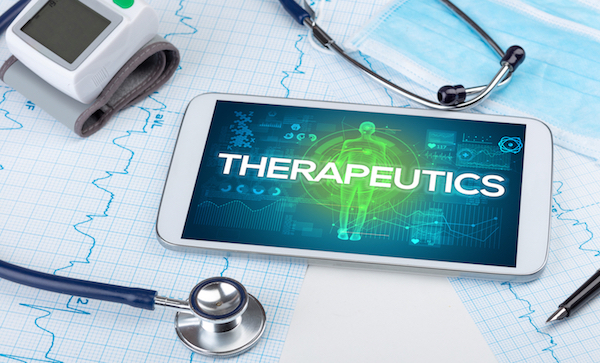Evidence-based digital platforms have a role to play in the recovery process
By Joseph R. Volpicelli, MD, PhD
It’s no secret that our nation faces an addiction crisis. In the 12-month period ending in April 2021, the overdose death toll was a record 100,000-plus. Opioids, particularly the potent synthetic opioid fentanyl, continue to account for a significant percentage of overdoses. Marginalized populations, including poor, uninsured, homeless and racial minorities, are at higher risk for opioid overdoses. Addressing the health disparities and eliminating the barriers that prevent individuals from reaching recovery continue to hamper an end to this crisis. The opioid epidemic is still far from over.

Medications such as methadone, buprenorphine and naltrexone are effective for the treatment of opioid use disorder (OUD) when combined with behavioral care. However, while 93% of healthcare providers believe patients receiving medications to treat OUD would benefit from counseling, only 36% report an adequate number of counselors in their area.
The value of behavioral therapy in recovery cannot be understated. Still, for many people, especially those in rural and underserved communities, it remains out of reach. The good news is that technology can help us increase access. Digital therapeutics are evidence-based online programs that offer an alternative to traditional therapy when connecting with a human, whether in-person or virtually, is not an option. Digital therapeutics can provide an additional layer of support to someone when they need it most.
What Is a Digital Therapeutic?
While you may not know about digital therapeutics right now, you will likely be hearing about them a lot more in the future. These programs, or digital platforms, are usually based on cognitive behavioral therapy (CBT) approaches and treat various medical disorders, from diabetes to insomnia. One new digital therapeutic, MODIA, is designed to incorporate CBT approaches and add motivational interviewing to help engage and keep the patient in treatment. It utilizes artificial intelligence (AI) not only to influence the type of content you see, but also to consider how to present the content based on your responses. It may show you supportive content in the form of an audio clip, bulleted text or long-form article. The more you use a digital therapy like MODIA, the better the AI knows what you like and how to best support you.
A Judgement-free Support System
One of the benefits of digital therapeutics for addiction treatment is that they provide a safe space for individuals to pursue evidence-based behavioral therapy. Research shows that addiction is a behavioral disorder related to changes in the brain. However, not all therapists are trained in how to support people with substance issues, which can impact care.
[A digital therapeutic] contains no prior biases toward the individual or addiction. Through this technology, we have the potential to eliminate stigma as a barrier to recovery. As contradictory as it may sound, technology can help humanize the experience.
A digital therapeutic is non-judgmental. It contains no prior biases toward the individual or addiction. Through this technology, we have the potential to eliminate stigma as a barrier to recovery. As contradictory as it may sound, technology can help humanize the experience.
On-Demand Support When It’s Needed Most
Those in recovery can experience cravings at any time, and a support group or provider is always accessible to help prevent relapse. In these in-between moments, digital therapeutics can provide another level of support. It can be there when an individual is experiencing cravings, depression, hopelessness and a need for positive encouragement. With MODIA, for example, a patient has 100% privacy with 24/7 on-demand access from anywhere with an internet connection. This gives the patient complete discretion over when and where to engage with the platform.
I have little doubt that the combination of appropriate medication with psychosocial support from a live human or a digital therapeutic can help people win this battle [against addiction].
The opioid epidemic has claimed far too many victims, and the COVID pandemic has made the situation worse, with many treatment centers have had to impose capacity restrictions. There was a cost, as evidenced by the latest statistics on overdose deaths. We can do much better in reducing unnecessary deaths and all the psychosocial consequences of opioid addiction. Access to appropriate medicines and evidence-based digital platforms could have helped those left without any access to the support they so badly needed.
Overcoming addiction continues to be an uphill battle for millions of people. Anyone who has been through it knows it is not a feat easily won. It takes work and a daily commitment to oneself to remain in recovery. However, I have little doubt that the combination of appropriate medication with psychosocial support from a live human or a digital therapeutic can help people win this battle.
Joseph R. Volpicelli, MD, PhD, is executive director of the Institute of Addiction Medicine. He also is an advisor to Orexo, the distributor of MODIA.
Top photo: Shutterstock














